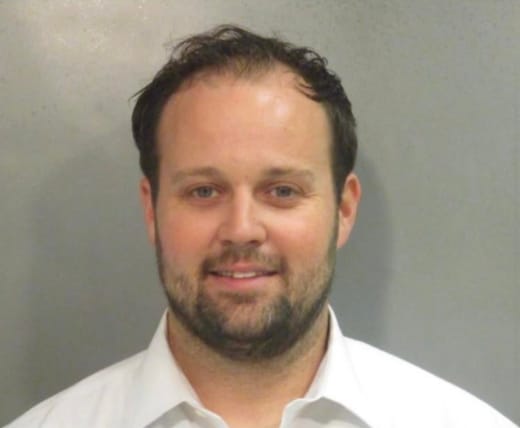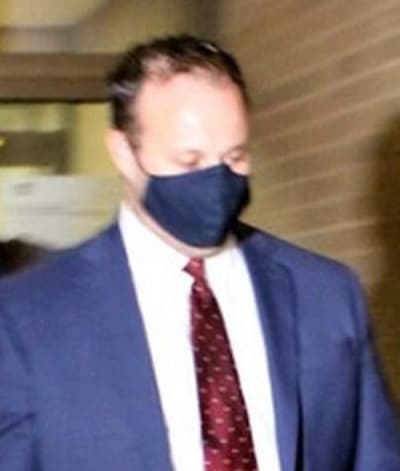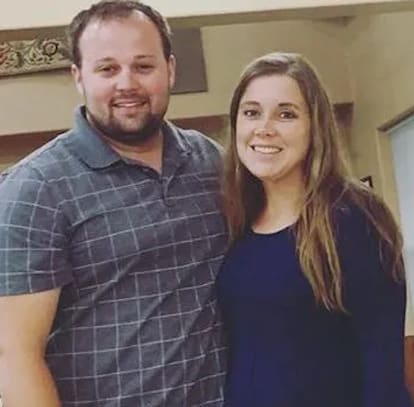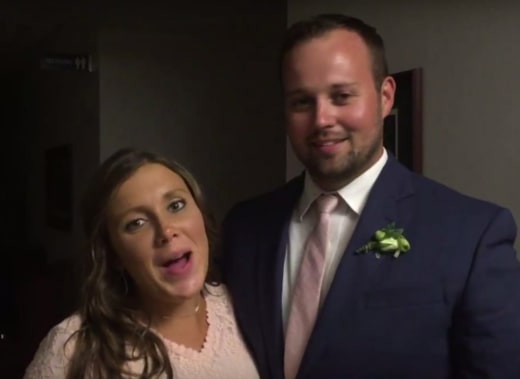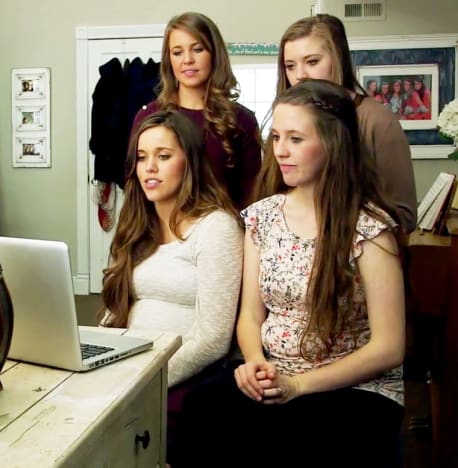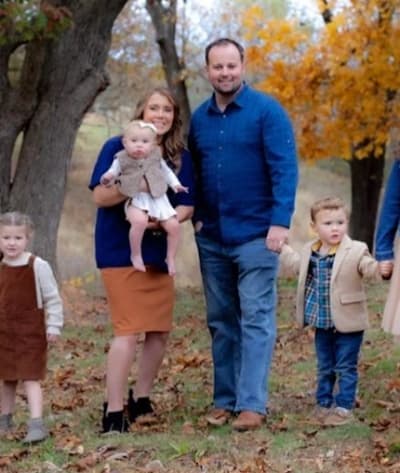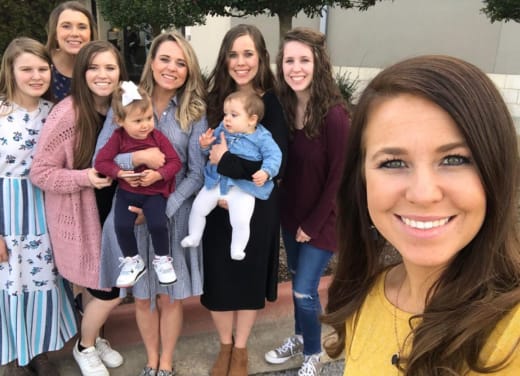Long before Josh Duggar was convicted on child pornography charges, his parents notoriously helped their predatory eldest son avoid prosecution for a previous spate of sex crimes.
In 2015, the world learned that Josh had molested five young girls -- four of whom were his sisters -- and at the time, Jim Bob and Michelle Duggar acted as though they went to the cops as soon as they found out about the assaults.
We later learned, however, that the couple did everything they could to cover up their son's crimes.
And were it not for the intervention of some longtime family friends, they might have been successful in keep that dark secret under wraps.
Though the attacks first came to light several years ago, they're making headlines this week due to a surprising legal decision.
In 2017, the four Duggar sisters who were molested by Josh filed a lawsuit against the Springdale Police Department, arguing that the organization had violated their rights by releasing Josh's police records to the press.
This week, a judge dismissed the Duggar sisters' case just two days before a settlement hearing that was to provide them a final chance to reach a deal without going to trial.
From the beginning, the odds were against Jill, Jessa, Jinger, and Joy-Anna, as they would have needed to prove malicious intent on the part of the police department, who released the records in response to a Freedom of Information Act request from In Touch magazine.
By dismissing the case before this settlement hearing, Judge Timothy L. Brooks denied the sisters their final chance to be financially compensated for the release of the records.
The judge explained his decision in a 20-page ruling which was obtained by Starcasm this week.
"From approximately March of 2002 until March of 2003, the Plaintiffs were sexually abused by their brother, Joshua. He was 14 years old when the abuse began and 15 years old when it ended," Judge Brooks wrote in his decision.
"At the time of the abuse, the Plaintiffs ranged in age from 5 to 11 years old.
"Their parents, Jim Bob and Michelle Duggar, discovered the abuse but did not report it to the police or any state agency. Instead, they decided to keep it a secret and discipline Joshua privately," the judge continued.
"Unfortunately, whatever Mr. and Mrs. Duggar tried to do to stop Joshua’s behavior did not work, and by 2003, they turned to their closest friends, Jim and Bobye Holt, for advice and support."
Bobye Holt took the stand during Josh's child pornography trial and revealed that she became aware of Josh's sex crimes several years before his parents reported them to the police.
Holt says she encouraged Jim Bob and Michelle to take action to prevent further abuse, but she did not report the crimes herself.
At that point in his ruling, Judge Brooks addressed one of the more controversial aspects of the Duggars' Independent Baptist community:
The sect -- which many believe to be a cult -- allows for two types of religious services: public ones that are held in a church, and private ones, in which parishioners gather in each other's homes to sort out community matters away from prying eyes.
And it seems that Josh's crimes inspired many such meetings.
"The Holts and Duggars were leaders in their small religious community, which was composed of several families who shared the same beliefs and met at one another’s homes for church services, which they called 'gatherings,'" Brooks wrote.
"Once Mr. and Mrs. Duggar told Mr. and Mrs. Holt about Joshua’s repeated abuse of his sisters, the relationship between the two families became strained."
But still the Holts did not report Josh's crimes.
In fact, were it not for steps taken by the Holts' teenage daughter Kaeleigh, the inquiry into Josh's crimes might have ended there.
Kaeleigh was courted by Josh when she was 15, but her parents ended the relationship after learning of his sex crimes.
Relieved to be freed of her obligation to the son of her parents' best friends, Kaeleigh continued to document her findings about Josh's assaults on young girls.
"For the next several years, it appears very few people outside of the Holt family knew the Duggars’ secret," Judge Brooks wrote.
"However, in 2003, the Holts’ daughter, Kaeleigh, wrote a summary of what she had heard from her parents about the abuse in a letter to her favorite author. Instead of mailing the letter, she placed it in a book, which she left on her bookshelf.
"There the secret remained until 2006, when Kaeleigh loaned the book to a friend and fellow church member. Kaeleigh’s friend found the letter and shared its contents with her parents," Brooks continued.
"From that point on, the Duggars’ family secret spread by word of mouth to the other members of their close-knit church community."
The situation came to a head around the time that the Duggars were invited to appear on Oprah Winfrey's daytime talk show.
"On December 7, 2006, the Arkansas Department of Human Services Hotline received two tips that Joshua had molested his sisters. The first tip came from an anonymous caller to the Hotline," Judge Brooks wrote.
"The second tip came from Harpo Studios, the producer of Oprah Winfrey’s talk show. It seems the Duggars had caught the attention of the media at around that time because of their unusually large family."
Oprah's production team canceled the appearance at the last second, after the Duggars had already traveled to Chicago.
One week later, the family was interviewed by police.
On January 10, 2007, the Washington County Prosecutor filed a FINS (Family in Need of Services) petition in the Juvenile Court of Washington County.
In 2008, the Duggars became full-time reality television stars, and it wasn't until seven years later that the public would learn the truth.
Judge Brooks notes that Josh's victims were not named in the police report, but concedes that it would have been easy to narrow down the identities of the victims based on the following information that was provided:
"(1) they were sexually abused on multiple different occasions over the course of a year;
"(2) the abuse took place in the Duggar home;
"(3) the perpetrator of the abuse was Mr. and Mrs. Duggar’s child, who lived in the home; and
"(4) the victims of the abuse were Mr. and Mrs. Duggar’s children, who also lived in the home."
Plaintiffs maintain the publication of these two police reports caused them damage.
The ruling goes on to explain the ways in which the Duggar sisters' arguments and lengthy list of defendants was winnowed down in previous hearings.
At the time of Judge Brooks' decision, the Duggars would have needed to prove that the Springdale police were acting out of malice.
Previous hearings, however, concluded that the officers involved were merely complying with the terms of the FOIA request.
And so, the Duggars long courtroom losing streak continues, and the family's battered reputation suffers yet another hit.
We'll have further updates on this developing story as more information becomes available.
